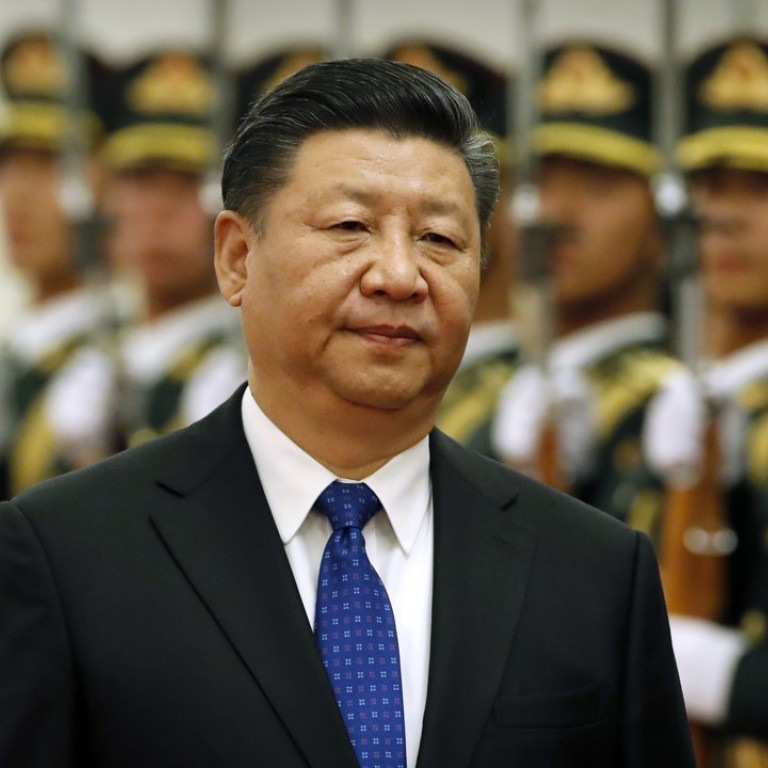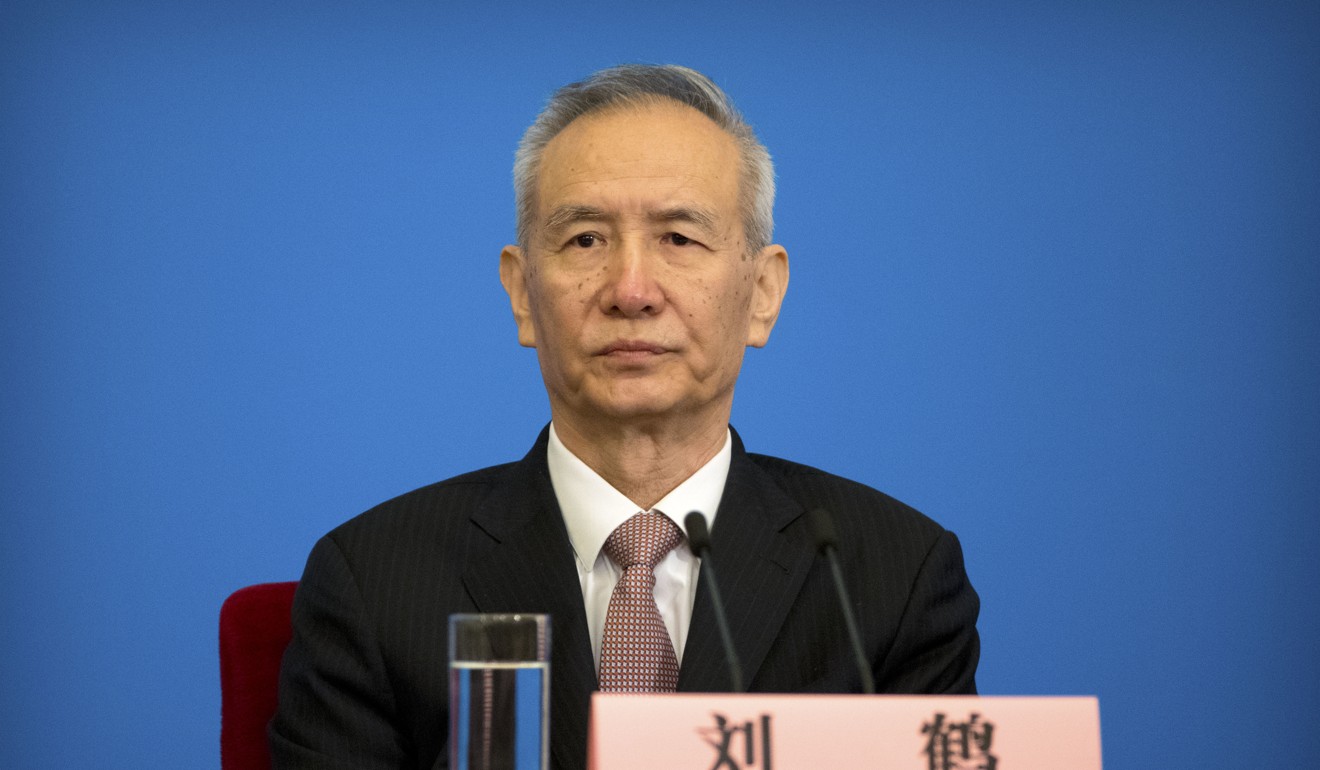
Why China’s new economic commission cements Xi Jinping’s grasp on levers of power
Policy-making body institutionalises party’s control over direction of world’s second largest economy
China’s Central Economic and Financial Affairs Commission convened for the first time on Monday with President Xi Jinping as the chair, marking the official start of a new command chain in running the world’s second biggest economy.
The new commission, which plays a similar role to the US National Economic Council, offers a permanent institution for Xi to drive through his economic policies, such as measures to defuse a debt bomb, analysts said.
The meeting, which was also attended by Premier Li Keqiang and Vice Premier Han Zheng, concluded that local governments and companies, especially state-owned enterprises, need to reduce their leverage ratio “as quickly as possible”.
The body has been elevated from a standing group under the Central Leading Group of Economic and Financial Affairs and its new role follows a major revamp of China’s ruling apparatus to give the party a more prominent role in public affairs.
A statement said Xi had stressed the need to implement his policies such as cutting debt, reducing pollution and eradicating poverty.
The official news agency Xinhua paraphrased Xi’s message as: “Financial risk management matters to national security... and the safety of people’s property.”
Zhou Hao, an economist with Commerzbank in Singapore, said the new body was an official way of implementing the view that “the party manages the economy”.
The institutionalisation of the commission and could help the outside world to have a better understanding of China’s policy direction, he added.
“In the past, we didn’t know whether or when the top leaders had meetings on economic affairs, and there was confusion even about basic issues such as whether China wants to spur growth or to cut debts,” Zhou said.
“Now everyone knows Xi is in absolute control... so if Xi said the priority is to cut leverage for China, we know China will do it.”

Xi’s plan to centralise the decision-making powers of the party actually started five years ago, an article published by Xinhua over the weekend disclosed for the first time.
At the first meeting of the team convened by Xi on April 17 2013, he decided to change the role of the team from a consulting group to a “decision-making” one – an approach that would be different from the days of his predecessors of Hu Jintao and Jiang Zemin.
The 2013 meeting had been kept as a secret until last Saturday, as were the following four meetings of the leading group under Xi, which took place on a quarterly basis in July, September and December of 2013 and March 2014, covering issues of urbanisation, fiscal reform, water supply security and food supply security.
There were few public reports about the leading group’s activities before Xi’s accession.
Previously the State Council, or the central Chinese government, took the front-stage role in economic policy.
For instance, when the global financial crisis hit China’s growth, it was at a regular cabinet meeting that the then Premier Wen Jiabao decided to launch a massive stimulus of 4 trillion yuan.
China began to publish the central economic team’s meetings in June 2014 as it became increasingly clear that Xi, assisted by his top economic aide Liu He, had the final say over the world’s second biggest economy.
Xinhua has since published summaries of every single meeting, including the timing, the subject and main attendees. Xi has used to the forum to tackle a wide range of issues from China’s food security to the Belt and Road Initiative.
However, one exception was made in the case of the meeting on July 20, 2015 around the time of the stock market crash.
The information about this meeting to discuss China’s stock market was kept from the public until last Saturday.
Xinhua now reports that the meeting had originally scheduled to talk about poverty reduction, but Xi decided to add capital markets on the agenda in response to “the rare abnormal fluctuations” at the time.
A government source told the South China Morning Post later that the market situation then was so “sensitive” that the very fact of Xi having a meeting to discuss it was regarded as top secret.
“Issues relating to the stock market or financial operations were regarded as technical and apolitical before the stock market rout, but that’s no longer the case after the stock market rout,” said the source, who declined to be named as he was not authorised to speak to the media.
Xi’s detailed instructions were not made public.
In the following weeks, the Chinese authorities played up the issue as a matter of national economic security and greatly expanded their crackdown.
A number of arrests were made, including executives at brokerage houses, a journalist with an influential magazine, senior officials at the China securities industry watchdog, and a renowned private fund manager.
Under Xi, the centralisation of economic power and enhanced state intervention in the marketplace, including the onshore exchange rate market, have helped China to recover from the 2015 market crash and capital flight the following year.
China has also avoided an economic hard landing with a 6.9 per cent economic growth rate for 2017.
Chen Zhiwu, director of the Asia Global Institute at the University of Hong Kong, said the new commission was an official confirmation of Xi and his aide Liu He’s authority in the economic field.
“Whether it is the state or the party...the decisionmaking power lies with him,” said Chen. “The power
structure that has been coming into shape in the last five years is now officially confirmed.”
Additional reporting by Frank Tang


